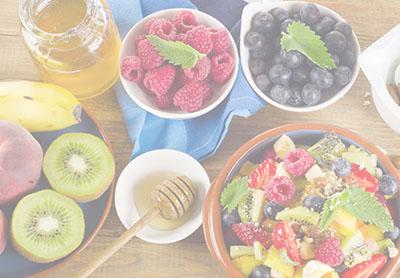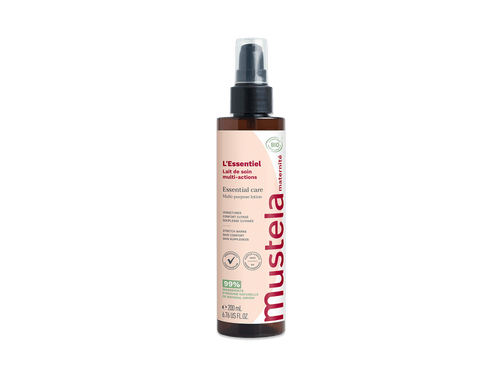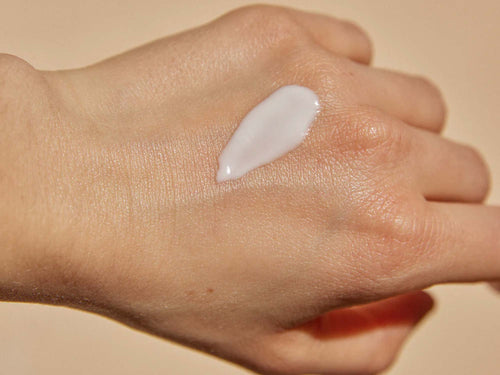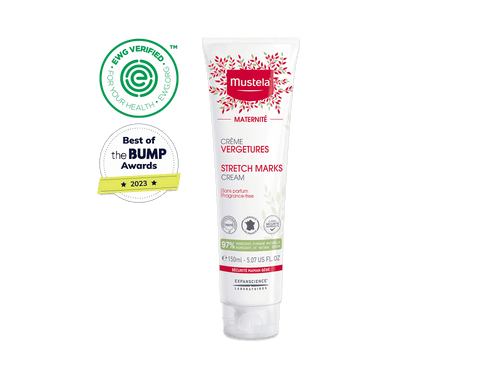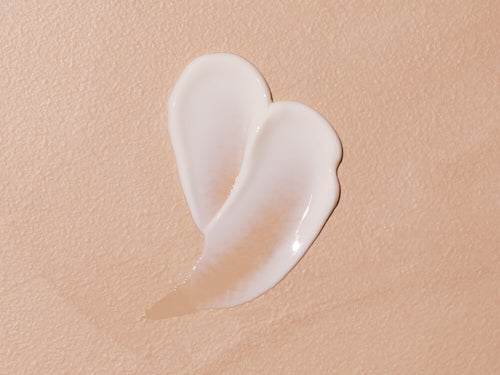Pregnancy and motherhood bring a lot of changes to your life. If this is your second or third child, you might know what to expect. If this is your first child, though, the changes can be overwhelming.
Your body and your habits change when you get pregnant, and they change again after you give birth. There is, however, one thing that doesn’t change after you give birth: the importance of eating a healthy diet.
Especially if you’re breastfeeding your new baby, you probably have several questions about your diet — what needs to change, what you should and shouldn’t eat, and how much to eat. The nice thing about reshaping your diet is that it’s never too late to start.
What’s more, if you survived pregnancy cravings and you’ve got your healthy pregnancy diet perfected, you’ll be happy to know that a healthy breastfeeding diet isn’t much different.
There are, however, some parts of your diet that you’ll want to keep an eye on while your baby is nursing. Most importantly among them is the amount of micronutrients that you consume every day. Don’t worry if you’re a little confused at this point.
We’re here to help. We’ve put together a list of 11 tips, along with foods to avoid, to help you create the healthiest breastfeeding diet for you and your baby.
Table Of Contents
- 11 Tips For A Healthy Breastfeeding Diet
- Foods To Avoid When Breastfeeding
- Food Allergies
- A Healthy Breastfeeding Diet

11 Tips For A Healthy Breastfeeding Diet
1. Eat Lots Of Fruits And Vegetables
Fruits and vegetables are the cornerstone of any healthy diet — pregnancy, breastfeeding, or otherwise. Fruits provide vitamins like B1, B2, B6, and C, which help to keep you healthy and are necessary for milk production.
In addition, fruits like apples, bananas, oranges, and grapes contain antioxidants that rid your body of the free radicals that can build up and cause long-term damage. Oh, and let’s not forget about the fiber. Fiber helps your body absorb the vitamins and minerals while also assisting in the digestive process.
As you can see, fruits are chocked full of almost everything your body needs to stay healthy.
Vegetables also provide nutrients that are vital for a healthy breastfeeding diet. Green leafy vegetables like spinach, broccoli, kale, and asparagus often provide nutrients that other foods simply cannot.
For example, vegetables are the primary source of potassium, folate, and vitamin A, which all contribute to healthy cell function and division.
We recommend eating at least three servings of fruits and vegetables every day to get the proper balance of nutrients. All of these vitamins and minerals help produce the healthiest breast milk possible, while at the same time, giving you the energy you need to keep up with all your newborn’s needs.

2. A Little Bit Of Lean Protein Goes A Long Way
Lean protein provides the nine essential amino acids that your body can’t manufacture on its own and which aren’t available in most foods. Lean protein sources include foods like chicken, fish, eggs, milk, yogurt, cheese, quinoa, and soy.
For a healthy breastfeeding diet, include three servings of lean protein every day. That breaks down to about a cup of yogurt at breakfast, a few ounces of chicken on your salad at lunch, and a few ounces of steak or fish at dinner.
Keep in mind that your body will store excess protein as body fat, so there’s really no advantage to exceeding the recommended daily allowances.
Speaking of storing fat, you’ve probably given some thought to how you’re going to lose your pregnancy weight and decrease the appearance of stretch marks. Remember: be patient and aim to lose your pregnancy weight gradually.
Baby expert tip: Use our maternity products to combat stretch marks while you work on getting back in shape!
This line includes our Stretch Marks Cream, Stretch Marks Oil, and Body Firming Gel. The cream and oil create the perfect day and night skin care regimen, while the Body Firming Gel keeps your whole body hydrated and firmer-looking!
Breastfeeding requires a lot from your body, and you’ll need to eat around 500 calories more than you did on your pre-pregnancy diet. If your goal is to lose weight, talk to your doctor about how to strike a balance between losing weight and eating enough to provide your nursing baby with what they need.
3. Add A Whole Grain To Every Meal
While you can meet your daily carbohydrate needs with fruits and vegetables, whole grains are a great supplement to any healthy breastfeeding diet. Whole grains like brown rice and oatmeal are much denser in calorie and carbohydrate count than most fruits and vegetables.
In fact, it would take you five cups of broccoli to equal the carbohydrate count in a half cup of brown rice. That’s a lot of broccoli! Because of their density, we suggest keeping your whole grain consumption to three servings a day.
Focus on fruits and vegetables but include a small amount of pasta, pita, or fresh-baked bread with every meal.
If you’re struggling to produce enough milk to keep up with baby, whole grains may help. Adding whole grains like the ones we mentioned above into your diet can increase milk production.
Plus, it’s easy to slip a couple of servings of oats into your day — you can eat oatmeal for breakfast or have a healthy, oat-filled granola bar for a snack. If you’re doing some baking, you can also try substituting oat flour for white flour.
And finally, you can buy special lactation cookies that are full of oats and other grains that help boost milk production.
4. Include Healthy Fats

Healthy fats like walnuts, almonds, and avocados provide beneficial nutrients such as vitamin E, omega-3, omega-6, and antioxidants. Include these healthy fats in your breastfeeding diet but don’t go overboard. Eating too much fat can cause gas, bloating, and stomach discomfort.
Additionally, while it’s healthy in small amounts, too much omega-6 can raise your blood pressure and cause your body to retain water. A few slices of avocado on your lunch-time salad or a handful of nuts as a snack is enough to get all the healthy fats you need.
5. Drink 8 Cups Of Water Every Day
While your milk supply won’t be affected right away if you don’t drink enough water every day, it will eventually lead to dehydration. Dehydration can set you up for other problems including urinary tract infections, constipation, and fatigue.
In addition, to make up for the lack of water in your diet, your body will draw on the water in your joints, muscles, digestive system, and blood. This can lead to even further complications that can have an effect on your breast milk production.
To avoid these problems, we recommend drinking eight cups of water every day while you’re breastfeeding.
6. Don’t Skimp On Calcium To Ensure A Healthy Breastfeeding Diet
Breastfeeding draws from your body’s calcium reserves, so it’s important to get plenty of this micronutrient in your diet.
Calcium is important because it supports your skeletal structure and function by keeping your bones and teeth strong. It also plays a role in blood clotting, muscle contraction, nerve function, and cell communication.
We recommend consuming between 1000 and 1500 milligrams of calcium every day while your baby is breastfeeding. One way you can include this calcium in your diet is by taking a nutritional supplement or a multivitamin.
Another way is to eat natural sources of calcium like milk, yogurt, broccoli, bok choy, and collard greens.
7. Be Sure To Get Enough Iron
During pregnancy and breastfeeding, the iron content in your blood becomes diluted by an increase in red blood cell volume. This is a natural part of pregnancy, so there’s nothing to worry about. It just means that you’ll need to monitor, and likely increase, your intake of iron while you’re breastfeeding.
The reason you need to be aware of your iron intake is that it assists in transporting and storing oxygen in your body. It also contributes to energy production, cell respiration, and the production of white blood cells that fight bacteria.
The suggested daily intake of iron for breastfeeding women is nine milligrams. Good sources of iron include beef, poultry, seafood, and egg yolks. You can also ensure that you get enough of this micronutrient by including an iron-infused multivitamin in your diet.
8. Plan Your Alcohol And Caffeine Intake

While alcohol and caffeine are acceptable in small quantities while you’re breastfeeding, you should plan your consumption around breastfeeding time.
We suggest that you consume that glass of wine, mug of tea, or cup of coffee right after your baby has finished nursing rather than right before. This will give your body time to process the alcohol and caffeine and keep it out of your breast milk.
In addition, try to restrict yourself to one or two cups of caffeinated beverages per day. We know you’ll probably need the pick-me-up, but more than one or two cups can make you and your baby jittery, irritable, and even sleepless.
9. Keep Healthy Snacks Handy
Caring for a new baby and nursing around the clock keeps you busy — and hungry! But sometimes you simply have no time or energy to think about pulling a healthy snack together.
To keep your body healthy and your tummy full, make sure that you have healthy, low-prep snacks on hand and ready to go. Hardboiled eggs are a great option packed with protein. You can also order lactation cookies online for a treat that will boost milk production.
Other healthy snacks include Greek yogurt, carrots and hummus, snack bars, or a piece of fruit with a spoonful of nut butter.
10. Take A Multivitamin

You might not be getting the proper nutrients from your diet alone, which is why you should consider taking a daily multivitamin while breastfeeding. It’s important to get plenty of each of the two main types of nutrients: food intake nutrients and naturally released nutrients.
As the name suggests, food intake nutrients are those found in the foods you eat and can decrease in your breastmilk if you aren’t getting them from your diet.
Make sure you’re eating enough of the foods below so that you and your baby can benefit from these nutrients:
- Vitamin B1 — Fish, pork, seeds, nuts, and bread
- Vitamin B2 — Cheese, almonds, nuts, red meat, oily fish, and eggs
- Vitamin B6 — Seeds, nuts, fish, poultry, pork, bananas, and dried fruit
- Vitamin B12 — Shellfish, liver, crab, and shrimp
- Vitamin A — Sweet potatoes, carrots, dark leafy greens, and eggs
- Vitamin D — Cod liver oil and some mushrooms
Naturally released nutrients, on the other hand, are not affected by your diet alone. If your intake is low in any of these particular nutrients, your body will take from your bone and fat stores and release these nutrients into your breastmilk.
This means that your baby will always get the right amount of naturally released nutrients. But you? Not so much.
Eat as many of the foods below as you can (as long as they’re doctor-approved for nursing mothers), but also try taking a multivitamin to prevent you from becoming deficient in these nutrients:
- Folate — Beans, lentils, asparagus, and avocados
- Calcium — Milk, yogurt, cheese, leafy greens, and legumes
- Iron — Red meat, pork, poultry, seafood, beans, green vegetables, and dried fruit
- Copper — Shellfish, whole grains, nuts, beans, and potatoes
- Zinc — Oysters, red meat, poultry, beans, nuts, and dairy.
11. Listen To Your Body And Your Baby
Just as you should listen to your own body if it reacts to a certain food, you should also pay attention to your baby’s body. When you’re breastfeeding, what you eat is what your baby eats because the food you consume affects your breast milk.
If you notice your little one is ill, fussy, gassy, or has changes in their stool after feeding, they may be sensitive to something you’ve eaten. If you suspect that something you’re eating is upsetting your baby, talk to your doctor before making significant changes to your diet.
Foods To Avoid When Breastfeeding

Along with discovering what you can and should eat when breastfeeding, you may be wondering what you can’t eat while breastfeeding.
Nursing mothers are encouraged to eat healthy and diverse foods to ensure adequate nutrition, but there are some foods that doctors recommend staying away from.
Foods That Hurt Your Baby’s Tummy
Of course, giving your baby an upset tummy is the last thing you want to do! But some foods may cause your baby to become gassy, including cabbage, onions, broccoli, and anything too spicy. When you eat these types of food, your baby may end up fussy and irritable.
If you’re used to eating spicy foods, keep in mind that they might not agree with your baby. Watch your little one for signs of discomfort for at least two to six hours after consuming spicy foods.
Excessive Alcohol And Caffeine

We made a quick reference to alcohol and caffeine earlier, but it’s worth mentioning them again. Stick to one alcoholic drink just a few times per week at max and one to two cups of caffeine per day at max.
Alcohol passes through your breastmilk, so it’s best to have a drink right after nursing your baby to allow enough time for the alcohol to exit your system. It takes your body about one to two hours to clear each unit of alcohol.
For instance, a small glass of wine is typically around 1.5 to 2 units, a large beer around 2 to 2.5 units, and liquor around 3 units. So, on average, it will take your body anywhere from two to six hours to clear the alcohol so that it doesn’t pass through your breastmilk.
What about caffeine? We know you might want to load up on the coffee after a long night, and that’s fine as long as you don’t overdo it. One or two cups of coffee per day is the recommended max.
Moderate amounts of coffee and other caffeinated drinks — such as tea and soda — have not been shown to harm breastfeeding babies. But they may affect the quality and length of your baby’s sleep.
Some women choose to avoid alcohol and caffeine consumption altogether while breastfeeding, but these beverages are completely safe to consume in moderation. It’s totally up to you and what you’re comfortable with.
High-Mercury Fish
You’re sitting at a restaurant about to eat seafood, wondering what fish you can and cannot eat because you’re breastfeeding your baby. Well, the same guidelines that you followed for eating fish while pregnant apply while you’re breastfeeding.
Avoid fish containing high amounts of mercury, such as shark, swordfish, marlin, bigeye tuna, tilefish, and King mackerel. (Tuna is safe to consume in small amounts: 8 to 12 ounces a week of canned light tuna and four ounces a week of white albacore tuna.)
Processed Foods
It’s best to steer clear of these types of foods in general, even when you’re not breastfeeding. Processed foods contain a long list of chemical additives. They’re also high in calories and contain added sugars and fats that are not healthy for you or your baby.
Always check food labels when grocery shopping and choose the least-processed foods possible.
Food Allergies

While it’s highly unlikely that your baby is allergic to something in your diet, there is a small possibility of an allergic reaction. Signs of an allergic reaction to watch for include:
- Extreme fussiness and crying
- Occasional or frequent vomiting
- Loose or bloody stools
- Lack of weight gain
- Eczema or hives
- Wheezing or consistent nasal drainage
Check in with your child’s pediatrician if you suspect your baby has an allergy, especially if there’s a family history of allergies. To find the culprit, the doctor may have you temporarily eliminate some foods from your diet.
A Note About Cow’s Milk
Cow’s milk is the most common trigger of allergic reactions in babies. Fortunately, babies usually outgrow their intolerance to cow’s milk, so, eventually, you can add it back into your diet.
But if your little one continues to have trouble with it, you’ll need to take a calcium supplement so that they get the nutrients they need.
A Healthy Breastfeeding Diet

Breastfeeding will bring many challenges and changes to your life, so be patient and take care of yourself while you take care of baby. And when it comes to a breastfeeding diet, keep our 11 tips in mind and you can feel confident that you and your little one are off to a great start.


